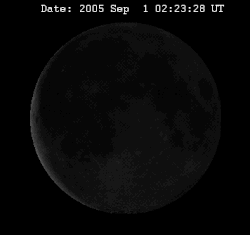User:Trafford09
Tip of the moment...
 Getting your edit count
Instead of counting your edits 500 at a time in your contributions list, you could look up your grand total on your Preferences page. Your number of edits is listed under "Basic information", near the top of the page. To get more details about your edits, try X!Tools's Edit Counter, which tallies up all your edits of each area of Wikipedia, and displays the totals for each and the grand total. It also shows the number of unique pages edited, the average edits per page, number of edits still active, and how many edits have been deleted. – – To add this auto-randomizing template to your user page, use {{totd-random}}
|
- Tomorrow's FA (Featured Article)
Scott Carpenter (1925–2013) was one of the Mercury Seven astronauts selected for NASA's Project Mercury. In 1962, Carpenter flew the Mercury-Atlas 7 mission to become the second American to orbit Earth and the fourth to fly into space. His spacecraft, which he named Aurora 7, malfunctioned and landed 250 miles (400 km) from its intended splashdown point. In 1964, Carpenter took a leave of absence to join the U.S. Navy's SEALAB project. During aquanaut training, he suffered injuries that grounded him, making him unavailable for further spaceflights. In 1965, he spent 28 days on the ocean floor as part of SEALAB II. He returned to NASA as Executive Assistant to the Director of the Manned Spacecraft Center. He retired from NASA in 1967 and the Navy in 1969, with the rank of commander. Carpenter became a consultant on space flight and oceanography. He appeared in television commercials and wrote a pair of technothrillers and an autobiography. (Full article...)
(Don't panic if the above item is in red.)
... ctd.
(not really, but I like the gif)
(another neat gif)
|
... so see US firearm deaths, {US} angry White man and
|
If some of the above tickle you, do check out these: User:Ira_Leviton#About_me_via_userboxes - bravo Ira :)

How is Wikipedia considered, externally?
[edit]* * * Did you know that you can support Wikipedia, by becoming a fan of its Facebook Group? * * *
| External aspects of Wikipedia. Hit 'show' to present a drop-down list ---> | |
|---|---|
|
"Wikipedia better than Britannica", claims experienced dictionary-writer. Good ol' Beeb. Several sections of the BBC have a policy of using Wikipedia unashamedly (good on them). BBC article March 2009: "UK politicians' Wikipedia worries" is largely pro-Wikipedia, despite its title. BBC article 2007: "Students 'should use Wikipedia'" it says, partially quoting Jimmy Wales. Some BBC articles rely heavily on directing readers to WP, e.g. this article on WW2 code-breaking. The Electoral Reform Society (ERS) (here) directs viewers to Wikipedia's Counting Single Transferable Votes article. The Daily Telegraph's on-line website section provides an RSS feed from Wikipedia (here), above its own Technology RSSs, but ironically still propagates old anti-Wikipedia stories (here) ! BBC article 2005: [1] The results of an analysis of a broad range of entries from the websites of Wikipedia and Encyclopædia Britannica] states that "... reviewers also found many factual errors, omissions or misleading statements: 162 and 123 in Wikipedia and Britannica, respectively.". But we've improved since then, I'm quite sure. Re. spam: http://rushprnews.com/2010/03/31/pr-consultants-should-think-twice-before-using-wikipedia-to-promote-clients How big is Wikipedia? This big! See also Wikipedia:Statistics. As of today, Saturday, June 21, 2025, English Wikipedia has 7,021,497 articles. Wikipedia has an "External peer review" page: Wikipedia:External_peer_review. Quotes from people that have made comments about Wikipedia as a whole can be found at Wikipedia:Testimonials and Wikipedia:Criticisms. See also Category:Critics of Wikipedia. See also Wikipedia:Press coverage 2010. |
Favourite articles etc.
[edit]
Just a reminder to myself of what I rate as Good articles etc.
| My favourite articles | ||
|---|---|---|
|
 This Wikipedian recites the Wiki Prayer regularly. | God, grant me the serenity to accept the pages I cannot edit, The courage to edit the pages I can, And the wisdom to know the difference. |
See also
[edit]| Assorted snippets, hints & tips |
|---|
|
Click here. |
Self-reminders
[edit]| Things done / to do | ||
|---|---|---|
|
See web-browsers & mIRC chat, for double-spacing etc. |
Read, get & use user:chzz/help. |
Read about using freenode Correct any misused templates, finding them by a search of WP Mainspace articles, like this. |
Ongoing
[edit]
When the Moon is closest, it is at perigee, and it looks slightly bigger from Earth. Perigee is the point at which an object makes its closest approach to the Earth. Often the term is used in a broader sense to define the point in an orbit where an orbiting body is closest to the body it orbits. The opposite is the apogee, the farthest or highest point.
Vandal-patrolling.
Help out with pages which need copy-edit.
Most-wanted articles - some 'missing" articles are still linked 140 times!
Help with Requests for feedback, as & when I get time.
Added {{Portal box|Law}} * In re & {{Clear}} to these "In re" articles.
Wikipedia Templates and User Page Metadata
[edit] | |
| Wikipedia ads | file info – show another – #6 |




